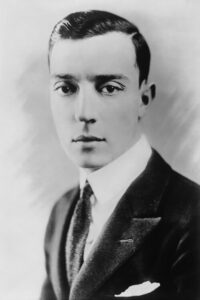
Under Cover
PARIS wears her greenest livery and offers her most gracious airs in early summer. When the National Fete commemorating the Bastille’s fall has gone, few Parisians of wealth or leisure remain in their city. Trouville, Deauville, Etretat, and other pleasure cities claim them, and even the bourgeoisie hie them to their summer villas.
The city is given up to those tourists from America and England whom Paris persists in calling Les Cooks in memory of that enterprising blazer of cheap trails for the masses. Your true Parisian and the stranger who has stayed within the city’s gates to know her well find themselves wholly out of sympathy with the eager crowds who follow beaten tracks and absorb topographical knowledge from guidebooks.
Monty Vaughan was an American who knew his Paris in all months but those two that are sacred to foreign travelers. It irritated him one blazing afternoon in late July to be persistently mistaken for a tourist and offered silly, useless toys and plans of the Louvre. The camelots, those shrewd itinerant merchants of the Boulevards, pestered him continually. These excellent judges of human nature saw in him one who lacked the necessary harshness to drive them away and made capital of his good nature.
He was a slim, pleasant-looking man of five and twenty, to whom the good things of this world had been vouchsafed, with no effort on his part to obtain them; and despite this, he preserved a certain frank and boyish charm which had made him famous all his life.
On his somewhat aimless wanderings, he came down the Avenue de l’Opera, sat under the awning, and ordered an innocuous drink. He was in a city where he had innumerable friends, but they had all left for the seashore, and this loneliness was unpleasant to his friendly spirit. But even in the Cafe de Paris, he was not to be left alone and regarded as fair game by alert hawkers. One would steal to his table, deposit some olives, and plead for two sous in exchange. Another would place some nuts by his side and demand a like amount.
Read or download Book
Roi Cooper Megrue
Roi Cooper Megrue (June 12, 1882 – February 27, 1927) was an American playwright, producer, and director active on Broadway from 1914 to 1921.
Biography
Roi Cooper Megrue was born on June 12, 1882, in New York City, the son of the son of Frank Newton Megrue, a stockbroker, and Stella Georgiana Cooper. He attended Trinity School (New York City) and graduated (A.B.) in 1903 from Columbia University, where he engaged in college theatricals. He wrote the libretto for The Isle of Illusia, an all-male operetta that included a caricature of Clyde Fitch, of whom Megrue became a close friend. At Columbia, he met and became a friend, of future Broadway actor Ralph Morgan.
Cooper worked with Elisabeth Marbury as a playbroker before starting his career as a playwright. He had a key role in the Dramatists Guild.
He never married and died on February 27, 1927, in New York City. According to the obituary on Variety, his “affectionate relationship with his mother was epic” and they shared an artistically furnished apartment. He is buried at Woodlawn Cemetery (Bronx, New York) with his mother.
The Roi Cooper Megrue Scholarship is awarded annually to a self-supporting student in Columbia College who, in the opinion of the Trustees, merits the award because of qualities of industry, ambition, and intelligence.
Career
The 1912 play White Magic was written by Roi Cooper Megrue and David Graham Phillips and produced by Liebler & Co. It opened at the Criterion Theatre on 24 January 1912. It closed in February 1912 after 21 performances. It starred Florence Brian, Ruth Chester, Charles Dowd, Gertrude Elliott, Ben Johnson, George Le Guere, Julian L’Estrange, Suzanne Perry, Alexander Scott-Gatty, and Suzanne Sheldon.
Roi Cooper Megrue wrote the 1912 play An Unlucky Star (1-act).
The 1913 play The Neglected Lady was written by Roi Cooper Megrue and produced on Broadway.
Roi Cooper Megrue and Walter Hackett wrote the 1914 farce It Pays to Advertise. It opened at the Cohan Theatre on 8 September 1914 and ran for nearly a year. It opened at the Bronx Opera House on 20 September 1915 produced by Cohan & Harris. The playwrights substantially rewrote the play for a new production in London by the actor-manager Tom Walls, at the Aldwych Theatre. It opened on 2 February 1924 and closed on 10 July 1925, a total of 598 performances. The 1919 (now lost) silent drama movie It Pays to Advertise was directed by Donald Crisp and written by Elmer Blaney Harris. The film stars Bryant Washburn, Lois Wilson, Frank Currier, Walter Hiers, Clarence Geldart, and Julia Faye. The film was released on November 23, 1919, by Paramount Pictures. It was remade in 1931 starring Norman Foster and Carole Lombard, and directed by Frank Tuttle.






